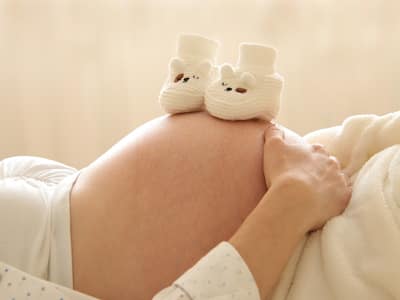VERIFIED By Dr Tanvi Chauhan, Manager – (Health & Nutrition), Bal Raksha Bharat (Save the Children)

Every Woman, Every Child but not Everywhere: Urgent Action Needed for Maternal and Newborn Health in Humanitarian Settings.
The physical environment, significantly when affected by natural or human-induced hazards, can dramatically influence maternal and newborn health outcomes.
Newborns are uniquely vulnerable, reliant on specialized care, and dependent on the health of mothers who are impacted by the crisis. The under-5 mortality speed stands 3x higher in 36 nations ranked as weak than non-fragile nations, as per UNHCR. Emergencies exacerbate these existing challenges for contexts already loaded by needy developing and motherly fitness effects. For too long, maternal health & newborns have been overlooked in humanitarian response efforts. Essential newborn interventions remain underfunded; few interventions have been designed with the mother in mind.
Time To Act
- We are failing the world’s most vulnerable at the time of their greatest need. Urgent actions are needed to improve maternal and newborn health during the humanitarian crisis, and we foresee more challenges with the upcoming climate change.
- Specifically, breastfeeding space should be included in emergency sheltering and supplies for sanitizing infant bottles. Such a problem only reflects an overall system of emergency management and disaster services that does not support the critical needs of pregnant and birthing people and infants. Effective implementation of Maternal and newborn health programs in humanitarian settings requires funding, multi-sectoral coordination, skilled providers, supplies, equipment, and support.
Actions to be taken:
One method to facilitate disaster exposure is to advance general fitness courses before tragedies to decrease the chance of disease. Despite the many benefits of breastfeeding in crises, formula businesses employ tragedies to mass-distribute and market baby formula and remain unregulated.
- Strengthen the mother-newborn dyad in humanitarian crises: Protecting the mother-baby dyad is crucial in any setting, particularly during humanitarian responses, to ensure skin-to-skin care, early and exclusive breastfeeding, and a nurturing environment for early childhood development.
- Protect, promote and support early and exclusive breastfeeding in humanitarian settings.
- Expand access to dignified and quality care during pregnancy, delivery, and postpartum: Preparedness is critical to doing this efficiently and cost-effectively.
- Essential newborn care interventions should be prominent in national policies and guidelines, health assessments, donor proposals, humanitarian response plans and supply lists for facility- and community-based programmes.
- Establish the Minimum Initial Service Package for facility- and community-based care at the onset of an emergency.
- Pregnant or lactating women and newborns face unique challenges during infectious disease outbreaks. Preparedness and response planning for humanitarian interventions should include health workers’ awareness of preventing infection among this population. Appropriate care guidelines should be developed at the onset of the outbreak.
Those in crisis have no time to wait!
